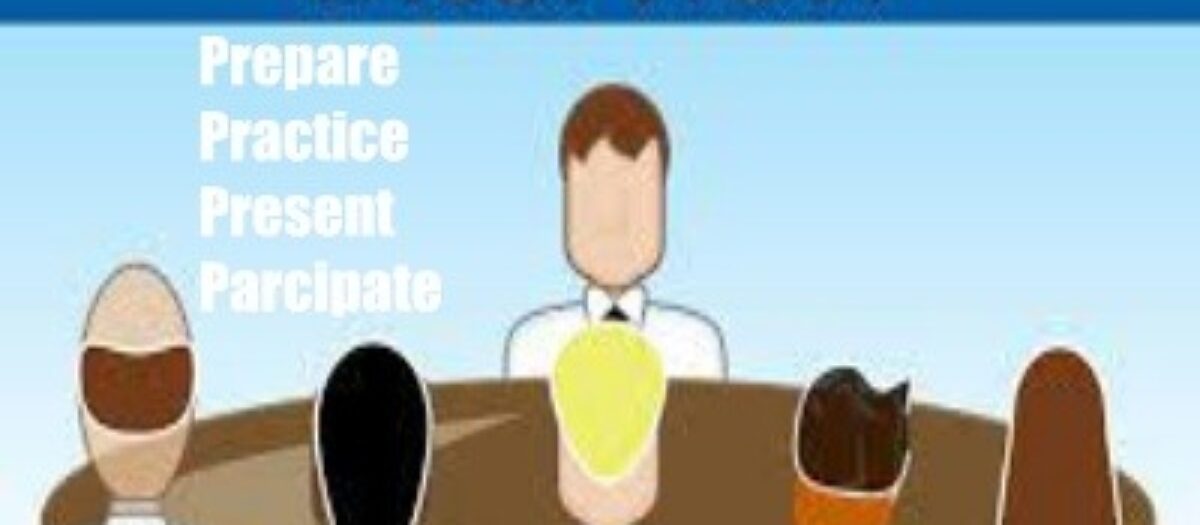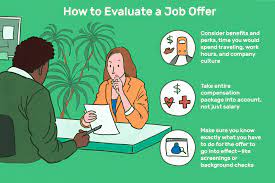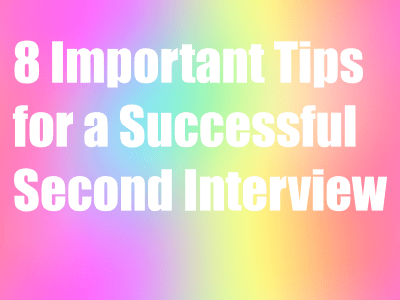- Prepare Yourself for the Interview
You’ll feel more confident and perform better if you make sure you’re prepared for the interview applying these steps.
- Understand Who You Are. You should be able to explain how your values, interests, and skills align with those of the organisation.
- Do some research on the company . This demonstrates your interest in the position and your want to learn about the goals, services, and core principles of the business. Look over their most recent annual report or press releases to determine how they connect to the job you are applying for. You may discover this information online, but you can also contact or visit and get brochures or other publications.
- Know what you’re doing In relation to the job description. Request a thorough job description from their human resources department or hiring manager. An employee at the company can provide more information about the position. Converse with a colleague in your network who performs a comparable job.
- Imagine that you are actually the interviewer. Make a list of the queries you want to put to a prospective employee. Do some research before responding. Make sure you are equipped to handle these typical interview inquiries.
- Try to understand the worries of the employer. A worker’s right are protected and should not be discriminated upon based on the basis of age, colour, religion, or family status. However, workers with criminal background, lost of job before should be prepared for more questing . Be prepared to discuss these topics in response to inquiries.
- People with optimism and enthusiasm are sought after by employers. One displays a positive attitude by accepting responsibility for any mistakes they may have made. Most employers seek someone who can provide this.
- Check out your resume. at order to highlight them at the interview, decide which of your talents and skills are a fit for the position.
- Your accomplishments should be listed. Prepare to discuss them with hiring managers in a way that demonstrates your ability to carry out the necessary tasks. This is where the STARS technique excels. You can prepare examples to demonstrate your abilities with the aid of STARS.
- Make up a list of inquiries you have or important details regarding the job posting or the employer. List three questions you have, for instance, about the position. Don’t simply ask questions, ask intelligently.
- People who will serve as references should be ready. Share with them the position you’re applying for and how you plan to pitch your qualifications. Should you be asked for one, bring a list of references with you to the interview.
- Record the location of the interview. Discover the best route to take and estimate the duration of the journey. Your travel time will therefore increase by 15 minutes.
- Practice out your speech in both its content and delivery.
Understanding what must be done gives one confidence. Your tension will be lower and you won’t have to scramble for solutions. Practise your prepared material as much as possible to increase your confidence. As an example:
- Study your prepared questions and answers. Make a decision as to which scenarios would be appropriate in the questions. The STARS approach can assist you in creating a narrative summary of your accomplishments, which makes it simple to recall specifics.
- Try out loud a few of your responses. Keep your responses from being memorised. It should appear that you are conversing with someone. If you want to hear how you sound, record your responses.
- Be mindful of your body language. In order to examine your posture and facial expression, practise in front of a mirror. Be sure to:
- Maintain a posture that is upright and relaxed. One can actually tell how confident someone is by their posture.
- Only smile when it’s necessary.
- Engage in eye contact.
- Your feet should be on the ground as you sit up straight, except when making making a point. keep your hands motionless on your lap or on the chair’s arms.
- When answering a question, make the proper hand motions, show curiosity by leaning slightly forward. When you lean back or sit on the edge of your chair, you could come across as indifferent or tense.
- You and a friend should simulate the interview. Make sure your friend is watching you and looking at your body language while they look over your resume.
- Present and to make a good impression.
Presentation is essential. The way you look, act, and communicate will all be scrutinised by the interviewers. By looking professional, you convey that you are aware of the corporate culture and will fit in. You may ensure that you’re prepared by following these suggestions:
- Maintain a tidy, clean appearance. Important
- Avoid wearing perfume, cologne, or aftershave at some workplaces as they may have scent-free regulations.
- Try to dress a little bit nicer than you would have to for work. Take a visit to the company and look at what the staff is wearing to determine the dress code. Alternatively, speak to the front desk agent or a coworker you know.
- Wearing a suit to an interview for a creative job, like one at a graphic design firm, may come out as outdated or out of date. You might want to wear some flair in your attire. Expensive attire could send the wrong message at a non-profit. To determine what is proper in certain circumstances, you might need to conduct additional study.
If there are tattoos or even body piercings on you, it is advisable to use your initiative to determine if they will interfare with your ability to perform your duties
You should also try to identify if there are any health or safety risks that your body piercing may present at work. Could a piercing, for instance, unintentionally be torn out if the work is physically demanding?
- Cover up your ink, at least during the interview, if the field is conservative (like accountancy or banking) or if the job requires interaction with the public (like being a salesperson or a receptionist).
- Eventually, someone might see your tattoo if you decide to cover it up and later land a job. Instead, bring it up during the interview and inquire as to whether it will likely cause any issues. This demonstrates to the interviewer both your concern for and integrity in relation to the company’s culture and principles.
Additional clothing advice is provided below:
- Try to stay away from linen and other textiles that will wrinkle after you’ve ironed them.
- Do not wear trainers, t-shirts or headwear that are informal in nature.
- Keep an eye out for little things, like missing buttons.
- Wearing see-through, showy, too-short, or tight attire is not recommended.
- Avoid cluttered or bold prints by dressing in simple, neutral colours.
- It is encouraged to have a clean pair of well-maintained shoes
- Be smart for ladies, if walking will be difficult wit a high heel please wear flat ones.
- Affirm simplicity with your jewellery and accessories.
- Ask for advice on your dress selections from individuals you trust if you’re hesitant.
- Prompt arrival is always encouraged. Before the interview even begins, showing up late leaves a negative first impression.
- When you arrive, turn off your phone, and do not turn it back on until you go.
- Before you walk into the interview room, take three slow, deep breaths. You’ll appear more at ease as a result of this.
- Stay upbeat. Refrain from bringing up painful memories of unsuccessful job interviews or other difficult workplace circumstances.
- Make sure to smile, maintain eye contact, shake hands, and identify yourself when you first meet the interviewer. Give the interviewer the customary two shakes and firmly grasp their hand (not just the fingers).
- Keep standing until you are told to sit even if a chair is already positioned
- Participate Engage in the discussion wholeheartedly.
Your opportunity to demonstrate your optimistic outlook and effective communication abilities is during the interview. You can shine by following these recommendations:
- Instead of a laptop or another electronic device, take notes using a pen and paper.
- Suit yourself to the interviewer’s lead. Even odd or questions you might consider to be irrelevant are posed for a reason.
- For proper answers, pay close attention to the questions being asked. Politely request that the interviewer rephrase any questions that you don’t understand. Declare your ignorance about the solution.
- Prior to responding to a query, pause for a moment. If you require further time to consider your response, you can also request to return to the question later in the interview.
- If you must, show initiative. Is is generally a good practice to follow the interviewer’s lead, however, there are sometimes when the best approach is the softly and quietly dictate the conversation to allow for the proper understating by the employer how your experience and qualification connect with the job.
- Be kind, honest, and forthright.
- Maintain your focus.
- Refrain from only responding “yes” or “no.” Determining the interviewer’s questions can help you tailor your response.
- Post-interview follow-up is necessary. Email or send a letter of appreciation. Focus on two or three justifications for why you are the ideal candidate for the position.
Initial perceptions are crucial. You may demonstrate that you are a good fit for the role by using these 4 Ps, which will make you appear assured and capable.



